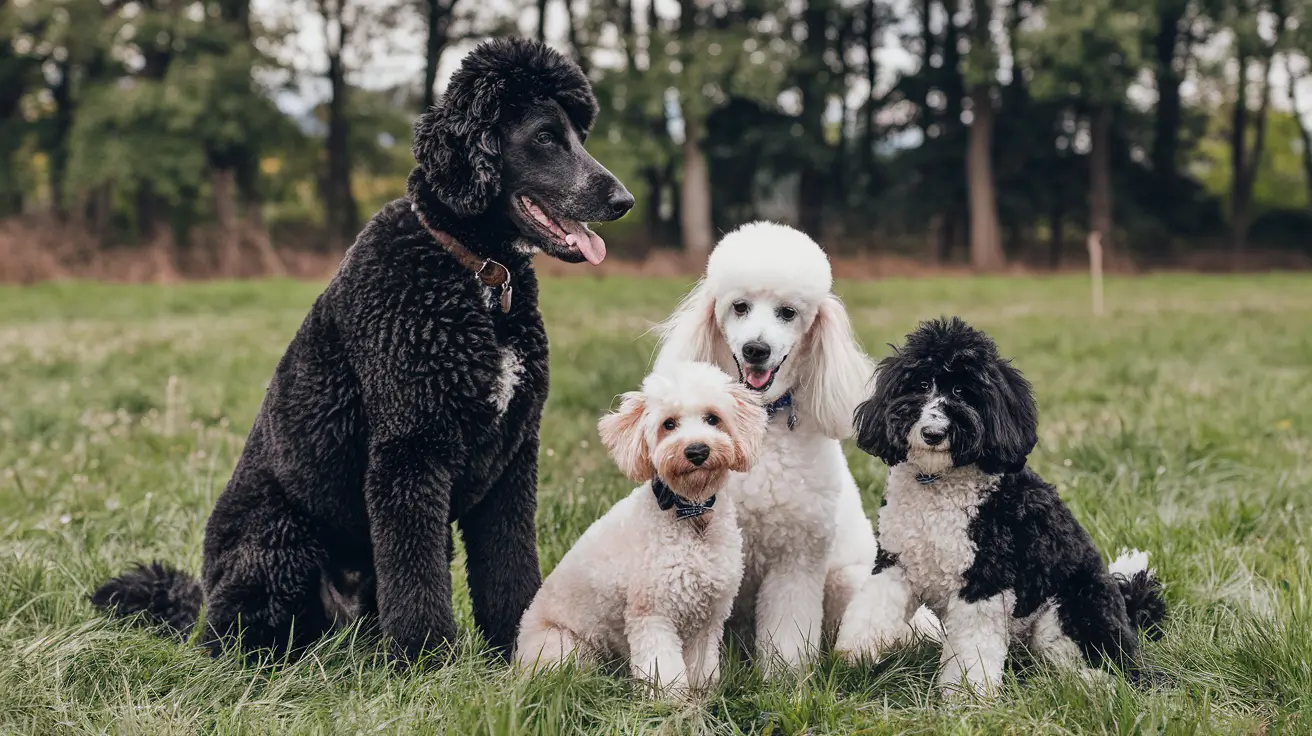I. Introduction to Poodles
Poodles are renowned for their intelligence, elegance, and hypoallergenic coats, making them one of the most popular dog breeds. Originally bred as hunting dogs in Germany, Poodles have a rich history and are now celebrated as the national dog of France. Their versatility and charm have made them a beloved choice for dog enthusiasts worldwide.
II. The Poodle Family Tree: Size Matters
The Poodle breed is divided into three main types: Standard, Miniature, and Toy. Each type has distinct characteristics and origins. Standard Poodles are the largest and were initially bred as water retrievers. Miniature Poodles, developed from the Standards, offer a more compact size while retaining similar traits. Toy Poodles, the smallest of the three, were bred for companionship and are known for their affectionate nature.
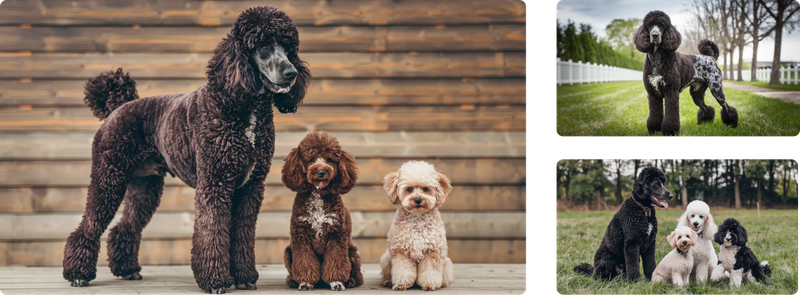
III. Standard Poodles: Majestic Companions
Standard Poodles are the original and largest of the Poodle types, standing at least 15 inches tall and weighing between 40 to 70 pounds. Known for their friendly demeanor and loyalty, they make excellent family pets. Their intelligence makes them highly trainable, excelling in activities like obedience and agility. However, they require regular grooming to maintain their distinctive curly coat. Health issues such as hip dysplasia and progressive retinal atrophy (PRA) are common, so regular veterinary care is essential. Their high intelligence demands consistent mental stimulation and exercise to prevent boredom.
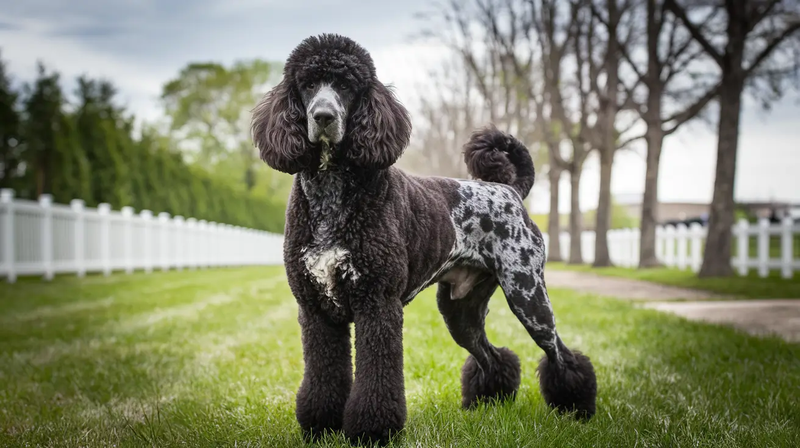
IV. Miniature Poodles: Versatile Family Members
Miniature Poodles, standing 10 to 15 inches tall and weighing 10 to 15 pounds, are adaptable companions suitable for various living environments, including apartments. They share the intelligence and trainability of their larger counterparts, making them great family pets. Like all Poodles, they require regular grooming. Health concerns like hip dysplasia and eye conditions are prevalent, necessitating careful selection of a reputable breeder. Miniature Poodles have high energy levels and thrive in active households with children and other pets.

V. Toy Poodles: The Compact Companion
Toy Poodles are the smallest of the Poodle types, weighing 4 to 6 pounds and standing no more than 10 inches tall. Bred primarily as companion dogs, they are intelligent and trainable, making them excellent family pets. Despite their small size, they require regular grooming and are prone to health issues such as patellar luxation and dental problems. Their sensitivity and alertness make them effective watchdogs, and they enjoy being close to their human families.
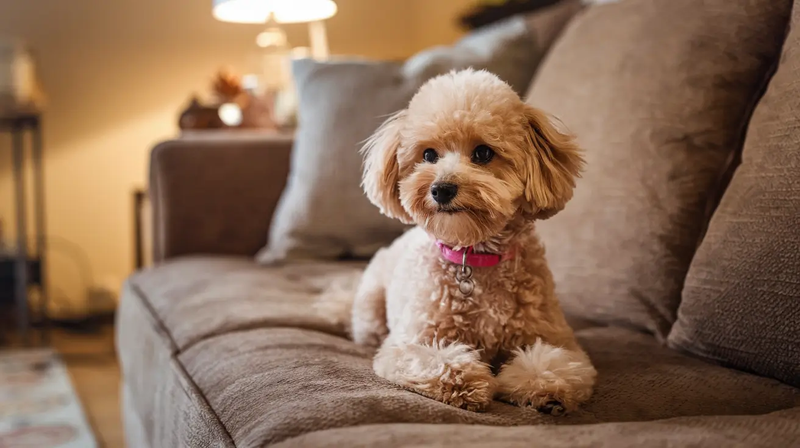
VI. Teacup Poodles: A Cautionary Note
Teacup Poodles are extremely small Poodles not recognized by major kennel clubs due to health and welfare concerns. Breeding practices for teacup Poodles often prioritize size over health, leading to issues like fragile bones and organ failure. It's crucial to choose breeders who focus on the health and well-being of their dogs rather than size alone.
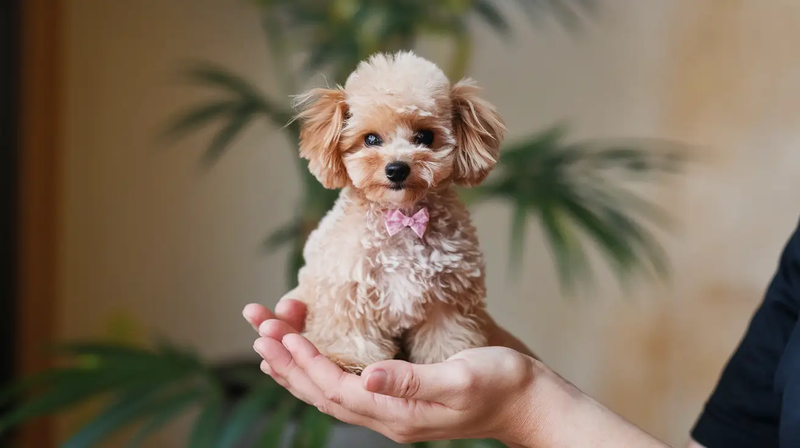
VII. Comparing the Poodle Types: A Side-by-Side Analysis
To assist potential owners in making informed decisions, it's important to compare the three Poodle types. Standard Poodles are the largest, requiring more exercise and having a lifespan of 12 to 15 years. Miniature Poodles are slightly smaller and more adaptable, with a lifespan of 13 to 15 years. Toy Poodles, the smallest, have a lifespan of 12 to 18 years. Each type has unique health considerations and activity levels, so understanding these differences is essential for choosing the right Poodle.
VIII. Choosing the Right Poodle for Your Lifestyle
Selecting the right Poodle involves evaluating personal lifestyle factors, such as exercise requirements and living situations. Consider how much time you can dedicate to exercising your dog and whether your living space suits a larger or smaller Poodle. Financial aspects, including grooming and food costs, are also important considerations. By assessing these factors, you can find a Poodle that fits seamlessly into your life.
IX. Essential Care for All Poodle Types
All Poodles require regular grooming to maintain their coats and prevent matting. Grooming needs vary with size, with Toy and Miniature Poodles needing more frequent attention. Training and socialization are crucial for all Poodle types, as they thrive on mental stimulation and respond well to positive reinforcement. Understanding the health issues specific to each size and choosing a reputable breeder are key to ensuring a healthy pet.
X. Family Dynamics and Poodles
Poodles are known for their friendly and outgoing personalities, making them excellent family pets. However, it's important to consider family dynamics when choosing a Poodle. Toy Poodles may be too sensitive for families with small children, while Standard and Miniature Poodles are generally better suited for such environments. Proper socialization and training are essential to ensure harmonious interactions with children and other pets.
XI. Conclusion: Making the Right Choice
In conclusion, choosing the right Poodle involves careful consideration of lifestyle, living situation, and personal preferences. Whether you opt for a Standard, Miniature, or Toy Poodle, remember that all Poodles require consistent grooming, training, and socialization. By conducting thorough research and selecting a reputable breeder, you can ensure a healthy and happy Poodle that will become a cherished member of your family for years to come.
Read by Poodle types topic:
Health & Care
- Poodle Health Problems
- Poodle Allergies
- Best Diet for Poodles
Breed Characteristics
- Poodle Temperament
- Poodle Coat Types
- Poodle Intelligence Ranking
- Poodle Colors
Training & Socialization
- How to Train a Poodle
- Poodle Exercise Needs
- Poodles and Kids
Grooming & Maintenance
- Poodle Haircuts
- Poodle Shedding
- Grooming Tools for Poodles
Breed Specifics
- Toy vs Miniature Poodle
- Poodle Sports and Competitions
- Standard vs Miniature Poodle
Ownership & Lifestyle
- Poodle Puppies
- Poodle Mixed Breeds
- Are Poodles Good for First-Time Owners?

